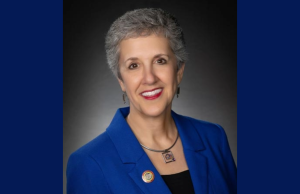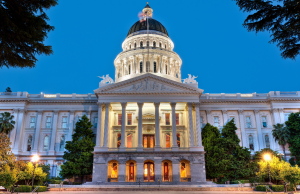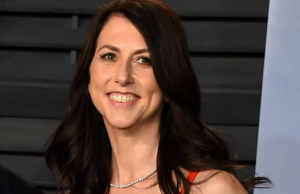The venomous political environment of 2020 is a minefield for nonpartisan nonprofit organizations. But tax policy, funding, and census-related issues are neither Democratic nor Republican. They are matters of survival.
This year’s top political concern is modifying the 2017 Tax Cuts and Job Act, which dealt nonprofits a major blow by increasing the standard, non-itemized charitable deduction and doubling the estate tax exemption.
“These changes went into effect January 1, 2018,” said Steve Taylor, senior vice president and counsel for public policy at United Way Worldwide in Washington, D.C. “They hit us some in 2018, and they are hitting us harder in 2019.”
Whatever can be done with tax policy “to incentivize more charitable giving… has to be in the top three [concerns] of every charity,” said Neal Denton, senior vice president and chief government affairs officer for YMCA of the USA.
Three bills in the U.S. House of Representatives – H.R. 651, H.R. 1260, and H.R. 5293 – call for the change. The bills have a mixed slate of backers – one primarily Democratic, one Republican, and one bipartisan.
“We think the three of them are generally getting to the same thing, to the creation of the universal charitable deduction,” said Denton, adding that the priority is getting representatives to sign on with at least one of them.
Other Tax Concerns
The nonprofit community scored a victory in late December 2019, when a tax code provision requiring nonprofits to pay tax on transportation employee benefits was repealed. But the sector is still fighting the Unrelated Business Income Tax (UBIT) expansion, which requires nonprofits to pay taxes on income generated from ventures unrelated to their core missions.
“[The UBIT adds] administrative costs and accounting costs. It is changing how we look at business development – unfairly, because it is only targeting the nonprofits,” said David L. Thompson, vice president of public policy at the National Council of Nonprofits.
Beyond Taxes
Nonprofit leaders remain wary about state and federal legislation that would set them apart from businesses. For instance, while there is some dissent about whether legislated employee benefits should apply to nonprofits, Thompson holds that exempting nonprofits is a mistake.
“We compete for employees,” said Thompson. “We don’t want to treat them as second-class citizens, and we don’t want to be the employer of last resort.”
At least when laws and regulations are created federally, nonprofits only have to comply with a single standard. Nonprofits have for years been struggling with a patchwork of state-by-state registration requirements regarding accepting contributions online. While a cottage industry in consulting has emerged, nonprofits would prefer a uniform law, according to Thompson.
The National Council of Nonprofits is pushing for a revamped disaster relief financial assistance package which would include loosening donation regulations and offering greater support for disaster-impacted nonprofits within the affected area.
Don’t set expectations too high, though. “Because 2020 is a presidential election year, and it’s going to be one of the most contentious presidential elections we have seen, that will largely grind lots of policymaking to a halt,” Taylor said. “Every now and then a member of Congress moves something through quickly and whatever [legislation] is moving becomes a vehicle for [add-ons of unrelated] issues.”

To incentivize more charitable giving … has to be in the top three [concerns] of every charity. – Neal Denton
Leaders at United Way Worldwide would like to see the eligibility age for claiming the Earned Income Tax Credit lowered. As 380 United Way outlets offer tax preparation services for low-income people, such a change would benefit people in the organization’s footprint.
“But mostly what we are doing in 2020 is laying the groundwork for 2021,” Taylor said. “Historically, the first year after a presidential election is when most of the big things happen.”
It Gets Personal
Sometimes legislation or executive action so directly impacts an organization’s core mission that opposing it becomes a top priority. For Kate Leone, chief government relations officer at Chicago-based Feeding America, that action was the Trump administration’s rule tightening eligibility requirements for the Supplemental Nutrition Assistance Program (SNAP), which would result in nearly 700,000 recipients losing benefits. The rule is set to take effect April 1.
“Historically, the first year after a presidential election is when most of the big things happen.” – Steve Taylor
Some states are moving to mitigate the damage by petitioning for allowances in higher-unemployment areas, including work training as work, and broadening exemptions for caregivers, those undergoing rehab programs, or volunteering.
For Feeding America, the challenge will be demonstrating SNAP’s impact beyond the individuals whose benefits will be cut. In rural areas, the loss of SNAP-based purchases will have a significant impact on retailers and grocers.
Vote and Be Counted
While the decennial census is nonpartisan, it is a huge issue for nonprofits. Census data can be the difference between a hospital adding a geriatric or a pediatric ward, according to Thompson.
“Our network has been extremely engaged in working to generate state and local government money for census outreach work,” Thompson said. “Through July, [it will be] a huge engagement for nonprofits.”
The National Council of Nonprofits is far from alone. “YMCAs around the country are working in a nonpartisan, apolitical way to ensure the most accurate count around Census 2020, and to provide as many opportunities for members of our community to register to vote and participate in the political process,” said Denton.
“That kind of civic engagement work must be a priority for the entire nonprofit sector in 2020,” Denton added.
Feeding America joined with voter participation organization Nonprofit Vote of Cambridge, Mass., during 2019 to test whether food banks were effective locations for encouraging voting. “Research has told us that direct service organizations where there is a level of trust are very effective places to engage people who are not registered, or who are unlikely to vote,” Leone said.
Feeding America relies on Nonprofit Vote to determine where voter registration efforts would do the most good. Its pilot took place in Asheville and Winston-Salem, cities in North Carolina home to different constituencies. Feeding America is considering expanding its pilot program to five or six more states during 2020.

“Our network has been extremely engaged in working to generate state and local government money for census outreach work.” – David L. Thompson
Feeding America is coordinating similar efforts around the census. At the national level, it is creating a knowledge database and materials which it offers to local food distribution centers based, in part, on where research has shown people are likely to not respond or be reached by census takers.
Money Talks
The other side to expanding, or even maintaining, social programs favored by nonprofits is how Congress will pay for them. Determining the “pay-fors,” as Leone calls them, “is where you start to see the difficulty.”
There’s good news and bad news when it comes to pay-fors. They are handled by the House Committee on Appropriations, and members are used to bipartisan wrangling and compromise. While this committee has traditionally been among the more willing to compromise, these are not traditional times. Even when legislators from both parties agree, they are less willing than ever to give the other party a win.
Pay-fors come into play at the state level, too. “A lot of states have serious arithmetic problems, when their revenues are not meeting their expenses,” said Denton. Rather than cut pay for teachers and law enforcement, states will explore new revenue sources, such as property taxes or other payments from nonprofits.
Denton offers advice not just for 2020, but for ongoing nonprofit political strategizing: find state coalitions of nonprofits and join them, especially since corporations whose missions don’t align with those of the nonprofits are likely already negatively portraying what the nonprofits are.
“Legislators are making decisions based on one-sided information” because the nonprofit sector isn’t in every statehouse, Denton said. “When you see strong nonprofit communities, you rarely ever see bills like these go very far.”
Keep It Nonpartisan
The same issue can be framed as both a red or blue concern. “If you want to speak to conservatives, you talk about why it is good for taxpayers,” said Thompson. “If you want to talk to progressives, you talk about the impact on people’s lives.” In either case, the truth is framed to trigger a positive reaction. A progressive group might send a pro-life politician a supportive note, asking him to extend his appreciation for the sanctity of life into opposing the death penalty in his state.
The YMCA’s Denton believes nonprofits might offer one of the few channels for comity within a hyperpartisan political environment. The nonprofit community is not in lockstep on this idea.
“While some of us are trying to figure out how to stake out and build up the middle, there are still organizations that generate more in gifts and support from their donors the more partisan they are,” Denton said. “As a result, we don’t have bills co-sponsored by both sides of the aisle like we used to. The general feeling on Capitol Hill is you don’t sign on the other guys’ bills and vice versa.”

“Research has told us that direct service organizations where there is a level of trust are very effective places to engage people who are not registered.” – Kate Leone
This dynamic sometimes puts lobbyists in matchmaker roles out of necessity. “There are a handful of organizations that have, as part of their approach to public policy, ‘we don’t support any bills unless there is both a Republican and a Democrat who has signed off on them,’” Denton said.
“All of us working together need 2020 to be a year that we start to find enough common ground to just begin talking together, instead of yelling.”

A Day At The Races
While nonprofit leaders steer clear of partisan political activities, they monitor Congressional races involving influential seats, such as the chairs and ranking members of the House Ways and Means Committee and the Senate Committee on Finance.
Even if allowed, backing a specific horse would be risky. In North Carolina, for example, Rep. Mark Walker (R-6th District), an advocate of fixing charitable deduction legislation, had his district redrawn. It is now overwhelmingly Democratic.
Walker will not run in the new district, nor will he make a 2020 primary challenge to Sen. Thom Tillis (R). If the senior North Carolina senator, Richard Burr (R), retires as promised in 2022, Walker might seek that seat. But were a Democrat to win, nonprofits might still have a senator sympathetic to tax code reform. – Richard Levey
Richard H. Levey is a freelance business writer and frequent contributor to The NonProfit Times.











